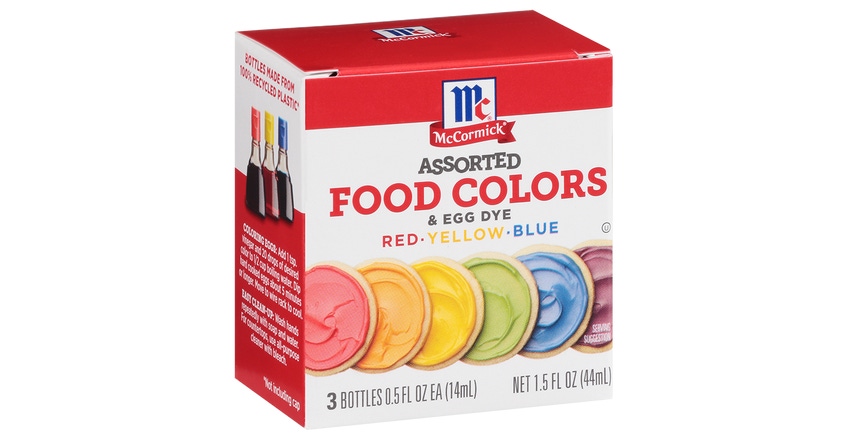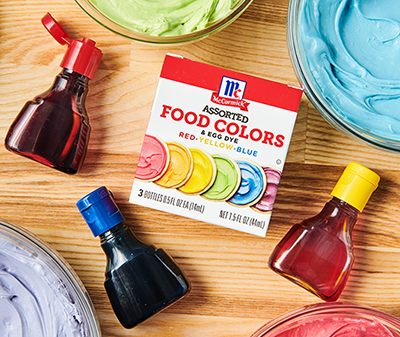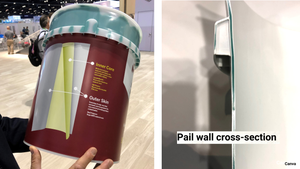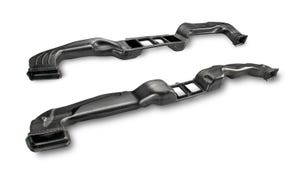McCormick’s Bottles of Food Color Turn 'Greener' with rPET
Collaboration leverages Berry Global's expertise in mechanically recycled polyethylene terephthalate (rPET).
July 7, 2022

In sustainable terms, McCormick & Company is adding a portion of "green" to its food-color bottles, thanks to a collaboration with Berry Global.
The new McCormick Assorted and Neon Food Color bottles are made from 100% post-consumer recycled (PCR) plastic, specifically recycled polyethylene terephthalate (rPET).
The new 0.5-ounce bottles will begin appearing on shelves across North America this month.
The arrangement, which leverages Berry's expertise and access to rPET, is aligned with McCormick’s commitment to achieve 100% packaging that can be recycled, repurposed, or reused.
|
McCormick and Berry have both set 2025 sustainable packaging goals and science-based emissions reduction targets aligned with limiting global temperature rise to 1.5°C in support of the global goal of net-zero emissions by 2050.
By shifting to a bottle made from rPET, McCormick is increasing the circularity of its packaging while reducing associated carbon dioxide (CO2) emissions.
"By collaborating with key suppliers like Berry, we gain access to valuable recycled content,” says Michael Okoroafor, chief sustainability officer for McCormick. “This 100% PCR bottle furthers our journey towards our emission reduction goal through packaging.”
"Deadlines for achieving sustainability goals are fast approaching, and brands want partners who can provide effective, impactful ways to reach those commitments quickly,” says Robert Flores, vice president of sustainability, Berry Global. “Berry's sustainability expertise, coupled with access to recycled content, provides the ability to commercialize sustainable packaging solutions with a lower carbon footprint."
Reducing carbon emissions through packaging.
A lifecycle assessment (LCA) estimates McCormick will realize a reduction of 86.8 metric tons/95.7 tons of CO2 emissions with the new PCR bottle in comparison to the same bottle made from virgin polymer. This equates to a 59% reduction in CO2 emissions, which is equivalent to…
Greenhouse gas emissions from 18.7 gasoline-powered passenger vehicles driven in a year;
CO2 emissions from 201 barrels of oil consumed;
Carbon sequestered by 103 acres of US forest in one year.
McCormick’s 2021 Purpose-led Performance Report emphasizes progress toward delivering industry-leading financial performance while doing what's right for people, communities, and the planet we share. This report details a series of commitments and clear performance targets for 2025, and beyond, aligned with the global UN Sustainable Development Goals (SDGs) – reinforcing commitments to sustainable sourcing and raw material procurement, as well as limiting their environmental impacts.
Berry is continuing to leverage its scale to acquire over 600 million pounds of recycled plastic by the year 2025 – which customers, like McCormick, need to meet ambitious sustainable packaging goals. Through recycling advancements and the use of responsibly sourced renewable resourced bioplastics, Berry's goal is to decouple packaging solutions from fossil fuels that make virgin plastic in the future.
About the Author(s)
You May Also Like





